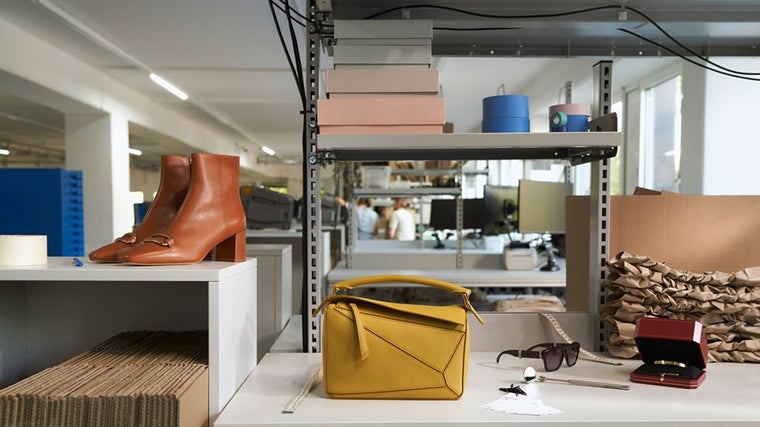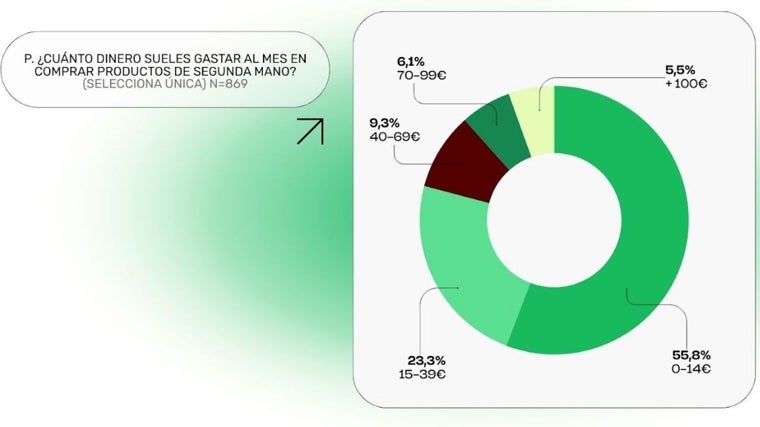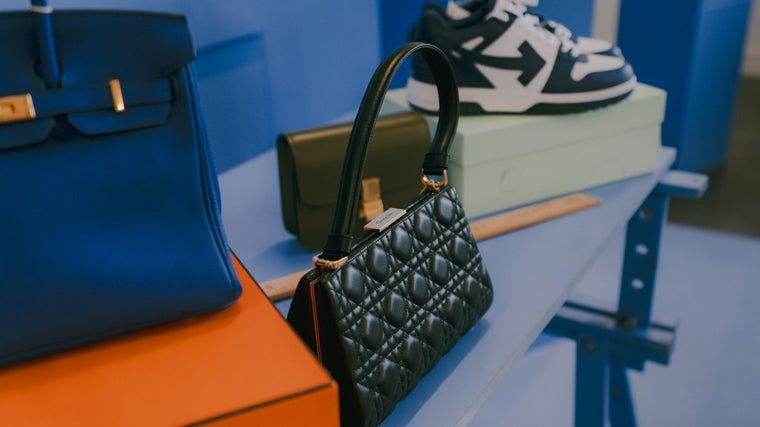Secondhand fashion: 87% of young people buy used clothing

In recent times, the way we shop has changed drastically. An oversupply of products, low-cost platforms, and the resale of used clothing have become part of everyday life, and new generations have changed their habits. The so-called Gen Z, young people between 18 and 29 years old, have redefined traditional consumption habits by combining social responsibility, greater financial awareness, and an intense connection with technology. However, despite this inclination toward this model, contradictions persist in their consumption habits: 38% of those surveyed are "little" concerned about the consequences of mass-produced apps , as revealed in the report "The True View of Gen Z Towards the Circular Economy," prepared by Milanuncios , a secondhand buying and selling platform, in collaboration with Mazinn , a consulting firm specializing in new generations.
In this context, the commitment to ecological awareness and the consumption of secondhand products or platforms that promote the collaborative economy have emerged as a popular option, especially for younger generations. Despite being immersed in a fast-paced consumer culture, they find this sector an opportunity to be more sustainable and discover unique products . However, despite this inclination toward this new model, contradictions persist in their consumption habits.

The study, carried out through a survey of 1,000 people between 18 and 29 years old , reveals data such as 47% of respondents say they buy second-hand products quite frequently and only 13% say they never do. Although the truth is that spending is moderate (48% of them admit to spending up to €168 a year on second-hand purchases), their favorite categories are Clothing and Accessories (chosen by 54% of them), followed by Technology (28%), Books (26%) and video games or consoles (19%) . In terms of their motivations, saving money, followed by finding unique products, (1 in 3 young people admits that thanks to second-hand products they have the opportunity to get something they couldn't afford), followed by sustainability and being able to access more expensive products at a more affordable price are the main reasons for turning to second-hand.
 Monthly spending on second-hand products
Milanuncios x Mazinn
Monthly spending on second-hand products
Milanuncios x Mazinn
Over the past year, one of the most popular trends has been the return to fashion from the 1990s and early 2000s . The 90s and Y2K spirit has become one of the most powerful styles flooding the world of design, audiovisual media, and other artistic and aesthetic fields. This trend has also impacted secondhand goods, driven by the nostalgia of reliving moments from their youth and also by younger people who are attracted to these types of products, such as analog music devices (cassette players and VHS players) or vintage consoles (Gameboys and PlayStations).

Generation Z is aware of the negative impact of their mass consumption, especially on apps or marketplaces known as "fast consumption." However, 38% of those surveyed are of little or no concern about the consequences of this consumption model, and only 25% are very concerned or fully aware. 38% of them admit to using these types of platforms several times a year, and only 12% say they never do.
As for "remorse," the truth is that only 31% of them say they sometimes feel some tension due to this confrontation, and 37% say they rarely worry about this situation.
Regarding the influences of this generation, 43% of young people admit they feel influenced by the content they see on social media, despite not specifically following content creators focused on this. If they do, it's because they prefer to discover new products rather than improve their lifestyle. Furthermore, within the family, they believe they are the ones who influence their family's decisions.
But is there any deterrent to buying more secondhand products? Respondents point to factors such as hygiene, doubts about quality, difficulty finding the product they're looking for, and inability to try it on, as some of the barriers they face. However, 18% say that distrust of quality is "not at all" a deterrent to purchasing.
abc





